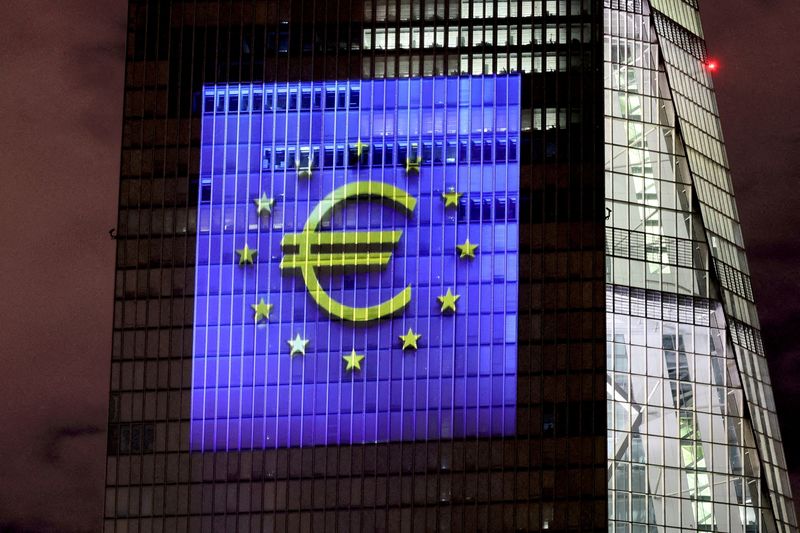By Frank Siebelt
FRANKFURT (Reuters) - The German academic behind the European Central Bank's biggest court setback is weighing legal action against the ECB's new bond-market shield, which he sees as "blatant" aid to Italy and other debt-laden states.
Markus Kerber is taking aim at the Transmission Protection Instrument (TPI), which will let the ECB buy bonds from countries that come under what it deems unjustified market pressure, provided they follow the European Union's economic prescriptions.
The professor of public finance at Berlin's Technical University said these potentially unlimited debt purchases were chiefly aimed at helping Italy, the euro zone's biggest debtor, and that they violate European Union rules barring the ECB from financing states.
"The ECB will openly become the underwriter of state debt," Kerber told Reuters in an interview. "This is a blatant case of state financing."
He added that any purchase made under TPI could be declared "null and void" and that he was discussing with his clients whether to file a complaint against the scheme.
An ECB spokesperson said the TPI had been designed with close attention to legal safeguards and approved unanimously by the Governing Council.
Italy is widely seen as "too big to save" by means such as the euro zone bailout fund, which would not be able to cope with the costs of supporting its government in a debt crisis like the one that rocked the bloc a decade ago. Then, the ECB quashed speculation by pledging to buy unlimited amounts of bonds from any member country that received an official bailout.
Kerber has lodged multiple lawsuits against the ECB's purchases of government bonds over the years - in one case forcing the Bundesbank, as the ECB's German agent, to justify itself before the country's top court.
But most of his attempts were unsuccessful.
German judges upheld last year the ECB's massive purchases of government debt during the coronavirus pandemic. In a prior case, the European Court of Justice found that it was acceptable for the ECB not to set a cap on how much it could buy as long as appropriate safeguards were in place.
The ECB has attached several conditions to any purchase made under TPI, including that a country stick to EU fiscal rules and that its debt is deemed sustainable.
ECB President Christine Lagarde said TPI had "the safeguards that are necessary" and the Bundesbank's head Joachim Nagel said he was confident the scheme would hold up in court.
But Kerber argued the ECB's stipulation that it must intervene whenever it sees as an excessive divergence in borrowing costs between different countries runs against the EU's support for free competition.
He also criticised the ECB's decision to buy bonds from Italy, Spain, Portugal and Greece with some of the proceeds it receives from maturing German, French and Dutch debt, in a bid to cap those spreads.

"If the ECB says that a yield spread of more than 2 percentage points between Italy and Germany is unwarranted, it is replacing the markets," he said in interview.
"How would the ECB even know that?"
(Additional reporting and writing by Francesco Canepa; Editing by Catherine Evans)